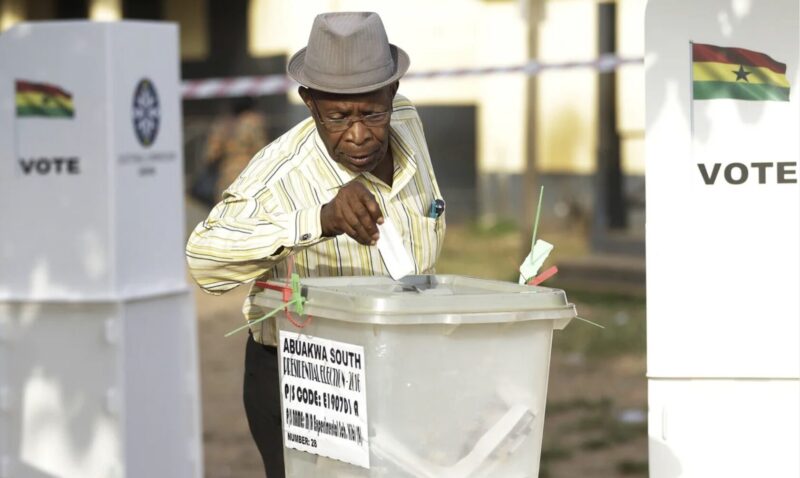The 2024 general elections marked a watershed moment in Ghana’s democratic journey. The real story was not simply who won but who stayed away from the polls. Nearly seven million registered voters, close to 40 per cent of the electorate, chose not to participate. This unprecedented disengagement demands careful examination.
A team of senior researchers, including me, undertook a nationwide study to understand the drivers of this phenomenon. (Data for the study was collected between January and March 2025.) Voter apathy, in this study, refers to the deliberate abstention from voting by registered and eligible voters. What we found was revealing. This was not an accident of disinterest or confusion. It was a silent but deliberate protest against perceived governance failures and economic hardship.
This article summarises the key findings, the deeper lessons they reveal, and why they matter for the future of Ghana’s democracy.
Apathy or Protest? The Empirical Story
Our study revealed that 70 per cent of non-voters were historically active voters, many having participated in the 2016 and 2020 elections.
Their sudden withdrawal in 2024 was neither random nor accidental.
When asked why they abstained, the evidence was overwhelming:
• Eighty-three per cent cited dissatisfaction with governance failures (43 per cent) and economic hardship (40 per cent).
• Only ten per cent cited poor infrastructure as a factor.
• Fewer than seven per cent attributed their abstention to logistical barriers such as travel constraints or voter ID issues.
In essence, the voter apathy witnessed in 2024 was largely an intentional political statement rather than a result of circumstance.
Would the NPP Have Won if Apathy Voters Had Participated?
A key question many political observers have asked is whether the New Patriotic Party (NPP) could have retained power had voter turnout been higher.
Our findings suggest otherwise:
• Had non-voters voted according to their historical patterns, the NPP would have narrowed the margin but still lost, reducing the vote difference from 1.7 million to approximately 470,000.
• Based on their actual 2024 political preferences, the NDC would still have won, albeit with a smaller margin of about 384,000 votes.
Thus, while the NPP numerically suffered the most from apathy, reactivating disengaged voters would not, on its own, have reversed the electoral outcome.
The deeper issue was a shift in loyalty and trust.
Education Was No Shield Against Disillusionment
Contrary to some expectations, education did not insulate voters against political disaffection.
• Voters with secondary and tertiary education also abstained in significant numbers, citing dissatisfaction with governance and unmet promises.
• Educated non-Akan voters, particularly among the Ewe, Mole-Dagbane, and Ga-Adangbe groups, shifted heavily toward the NDC.
• Even among educated Akans, loyalty to the NPP showed signs of erosion.
This underscores a new political reality:
Ghana’s educated youth are increasingly issue-driven, discerning, and demanding of results.
The Role of Media: Perceptions Trumped Narratives
Our study also highlighted the profound role of media in shaping political perceptions:
• Radio, television, and social media played a decisive role in framing voter attitudes.
• Even when political leaders attempted to counter negative narratives, the media environment had already crystallised public perceptions.
• For many voters, perception became reality, often outweighing official explanations.
In this environment, soft governance optics such as humility, responsiveness, and public engagement have become as critical as traditional bread-and-butter issues.
Minimal Regret: A New Voter Psychology
One of the most sobering findings was that only 19 per cent of non-voters regretted abstaining.
Four out of five either stood by their decision or were indifferent to the electoral outcome.
This suggests that political parties cannot assume that disaffected voters will automatically return to the fold.
Rebuilding trust will require real change, not mere appeals.
Lessons for 2028 and Beyond
The 2024 elections were a warning shot. Ghana’s democracy cannot sustain itself on assumptions of automatic voter participation.
Rebuilding political trust will require:
• Visible integrity and humility in leadership
• Effective governance that delivers tangible results
• Strategic engagement with the youth and educated electorate
• Professional management of public narratives across all media platforms
As we think of the 2028 elections, political stakeholders must recognise that voters today, especially the youth, demand not just manifestos but credible leadership behaviour.
Disclosure
This research was conducted by a team of seven senior researchers from the University of Cape Coast (UCC), Kwame Nkrumah University of Science and Technology (KNUST), University of Energy and Natural Resources (UENR), and the University of Education, Winneba (UEW). The study was led by Dr Emmanuel Marfo, former Member of Parliament for Oforikrom and former Research Scientist at the Council for Scientific and Industrial Research (CSIR). The findings and conclusions are based entirely on independent empirical analysis.
DISCLAIMER: The Views, Comments, Opinions, Contributions and Statements made by Readers and Contributors on this platform do not necessarily represent the views or policy of Multimedia Group Limited.


